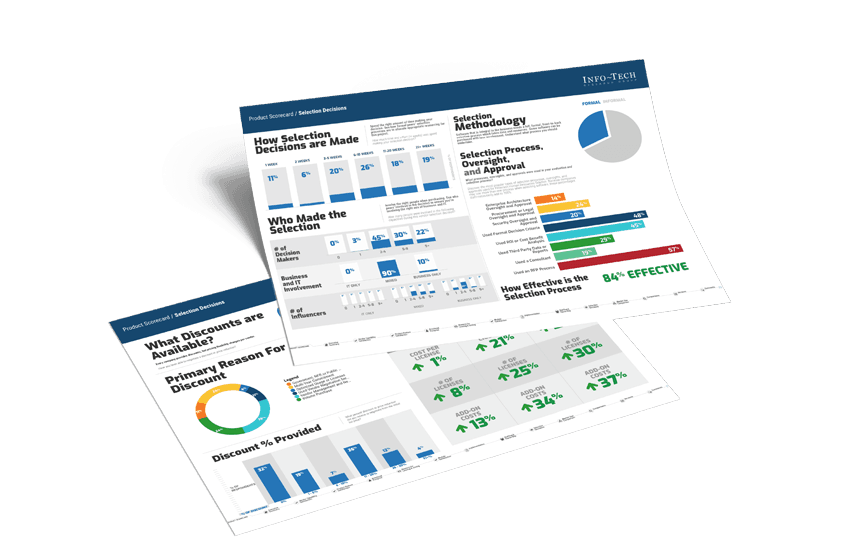The future of healthcare is shifting toward a more personalized and precise approach, one where treatments and medical decisions are tailored to the individual. This is the promise of personalized medicine, an emerging field that uses genomics, big data, and advanced technologies to customize healthcare based on a person’s unique genetic makeup, lifestyle, and environment.
Personalized medicine leverages genomic sequencing, biomarkers, and advanced analytics to better understand the complex biological factors that influence health and disease. By focusing on the individual rather than a one-size-fits-all approach, personalized medicine has the potential to revolutionize disease prevention, diagnosis, and treatment—leading to better health outcomes, fewer side effects, and reduced healthcare costs.
In this article, we will explore how genomics and big data are driving the future of personalized medicine, and what this means for both patients and healthcare providers.
1. Understanding Personalized Medicine: A New Era of Healthcare
Personalized medicine, also known as precision medicine, refers to the customization of healthcare treatment based on an individual’s genetic profile, environmental influences, and lifestyle factors. The goal is to deliver targeted therapies and prevention strategies that are more effective and have fewer adverse effects than traditional approaches.
Traditional medicine often uses a one-size-fits-all approach, where treatments are based on average responses from large groups of people. However, this approach doesn’t always account for the variability between individuals, including genetic differences, immune responses, and disease susceptibility. Personalized medicine seeks to optimize care by tailoring treatments based on individual genomic data and other health indicators.
Key Elements of Personalized Medicine:
- Genomic Information: By analyzing a person’s DNA, doctors can gain insights into their genetic predispositions to certain diseases, how they metabolize medications, and what treatments might be most effective.
- Biomarkers: These are specific molecules or genes that can indicate the presence or risk of disease. Biomarkers help identify individuals at higher risk and allow for early detection and intervention.
- Data Integration: Personalized medicine also involves integrating genetic data with other health information, such as medical history, lifestyle factors, and environmental exposures, to create a comprehensive view of the patient.
2. The Role of Genomics in Personalized Medicine
Genomics—the study of the entire genome (the complete set of genes) of an individual—is at the core of personalized medicine. With advances in genomic sequencing technology, we can now decode the human genome more quickly, accurately, and affordably than ever before.
Genomic Sequencing and Disease Prevention:
Genomic sequencing can provide valuable information about an individual’s risk factors for various diseases, such as cancer, heart disease, diabetes, and neurodegenerative disorders. By understanding an individual’s genetic makeup, healthcare providers can identify genetic mutations or variants that increase the risk of certain conditions and take steps to prevent or manage them earlier.
For example:
- BRCA1 and BRCA2 mutations: Women who carry mutations in these genes are at a higher risk for breast cancer and ovarian cancer. By identifying these mutations through genetic testing, doctors can recommend preventative measures such as increased monitoring, lifestyle changes, or even preventive surgery (e.g., mastectomy or oophorectomy).
- Pharmacogenomics: This branch of genomics focuses on how genetic variations affect an individual’s response to medications. By analyzing a patient’s genetic profile, doctors can prescribe drugs that are more likely to be effective and avoid those that may cause adverse reactions.
Example:
- 23andMe is a popular direct-to-consumer genetic testing company that offers insights into genetic predispositions to certain health conditions. Although the tests are not diagnostic, they provide users with information about potential health risks, allowing them to take a more proactive approach to disease prevention.
Genomics and Cancer Treatment:
One of the most impactful areas of personalized medicine is the treatment of cancer. Tumor genomics involves sequencing the genetic material of a patient’s cancer cells to identify specific mutations that drive the cancer’s growth. This information can help doctors select targeted therapies that attack the cancer cells more effectively while minimizing damage to healthy tissue.
- Targeted Therapy: Drugs like Herceptin for HER2-positive breast cancer or Gleevec for chronic myelogenous leukemia (CML) are tailored to patients whose tumors exhibit specific genetic mutations.
- Immunotherapy: Genetic testing can also help identify patients who may respond to immunotherapies, which leverage the body’s immune system to target and destroy cancer cells.
3. Big Data and AI: Transforming Personalized Healthcare
While genomics provides valuable insights into an individual’s genetic makeup, big data and artificial intelligence (AI) are transforming personalized medicine by enabling the integration, analysis, and interpretation of vast amounts of health data.
Big Data in Healthcare:
Big data in healthcare refers to the massive volume of health-related information generated from electronic health records (EHRs), genomic sequencing, medical imaging, clinical trials, and wearables. The ability to aggregate and analyze these diverse data sources offers an unprecedented opportunity to understand the complex relationships between genetics, disease, treatment responses, and outcomes.
By analyzing large datasets, healthcare providers can:
- Identify Patterns: AI algorithms can detect patterns and trends in data that may not be immediately apparent, such as risk factors for diseases or subtypes of a condition that may respond differently to treatments.
- Predict Outcomes: Predictive analytics powered by big data can help doctors forecast disease progression, predict patient outcomes, and determine which treatments are likely to be most effective.
Example:
- IBM Watson for Health is an AI-powered platform that analyzes vast amounts of medical data, including genetic information, to assist healthcare providers in making evidence-based decisions about diagnosis and treatment. Watson has been used to help identify personalized cancer treatments based on patients’ genetic profiles.
Artificial Intelligence in Personalized Medicine:
AI is also enhancing personalized medicine by helping to process and interpret genomic data more efficiently. Machine learning algorithms can analyze genetic sequences, identify mutations, and correlate them with disease risks and potential drug responses.
Key Areas AI is Transforming:
- Precision Drug Development: AI is being used to identify new drug candidates that target specific genetic mutations in diseases such as cancer and genetic disorders. This speeds up the process of drug discovery and increases the likelihood of developing effective therapies.
- Genomic Data Interpretation: AI-powered tools can quickly and accurately interpret vast amounts of genomic data, identifying genetic variants that may contribute to disease or impact treatment response.
4. The Future of Personalized Medicine: Advancements and Challenges
The potential of personalized medicine is immense, but there are still several challenges and considerations that need to be addressed as the field continues to evolve.
Advancements to Look Forward To:
- Gene Editing: Technologies like CRISPR are making it possible to edit genes, offering the potential to cure genetic diseases at their source. While still in its early stages, gene editing could play a key role in personalized medicine by enabling the direct treatment of genetic disorders.
- Expanded Access to Genomic Data: As genomic sequencing becomes more affordable and accessible, more people will have the opportunity to benefit from personalized care. This could lead to widespread genetic screening for early disease detection and prevention.
- Customized Vaccines: Personalized vaccines, designed to target specific mutations or genetic markers in individuals, are a promising area of research, especially in cancer treatment.
Challenges:
- Cost and Accessibility: While genomic sequencing and personalized treatments are becoming more affordable, they are still expensive for many patients. Widespread adoption will require health insurance systems to cover the costs of genomic testing and tailored therapies.
- Ethical Considerations: The availability of genetic data raises ethical questions about privacy, data security, and the potential for genetic discrimination. Ensuring that genomic data is protected and used responsibly will be critical as the field advances.
- Regulatory Hurdles: Personalized medicine involves complex treatments and technologies that will require regulatory oversight to ensure their safety and efficacy. The FDA and other regulatory bodies will need to keep pace with rapid advancements.
Conclusion: Personalized Medicine as the Future of Healthcare
Personalized medicine is transforming the healthcare landscape by enabling more precise, targeted, and effective treatments. By leveraging the power of genomics, big data, and artificial intelligence, the healthcare industry is on the verge of delivering treatments tailored specifically to an individual’s genetic makeup and health profile. This approach has the potential to dramatically improve health outcomes, reduce side effects, and even prevent disease before it develops.
As we move forward, the continued evolution of genomic sequencing, AI-powered diagnostics, and tailored therapies will usher in an era where medicine is more personalized, more efficient, and more effective. However, challenges related to cost, ethics, and regulation must be addressed to ensure that personalized medicine can be accessible to all and used responsibly in the fight against disease.













